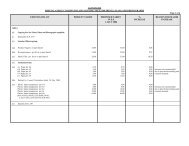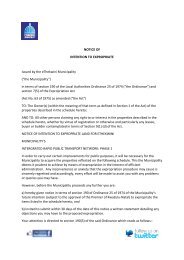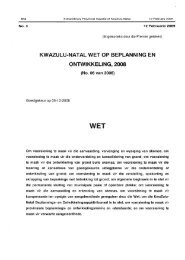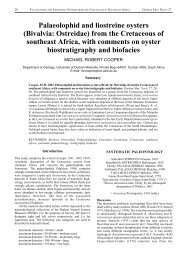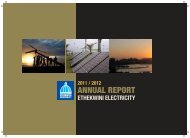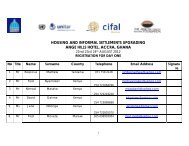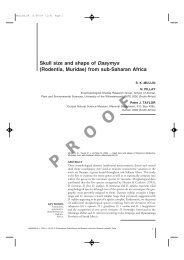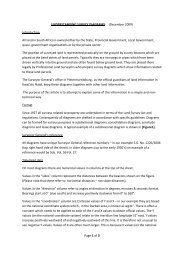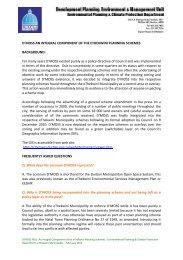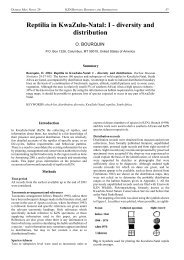CONSTRUCTION Background Construction Indust ... - Durban
CONSTRUCTION Background Construction Indust ... - Durban
CONSTRUCTION Background Construction Indust ... - Durban
You also want an ePaper? Increase the reach of your titles
YUMPU automatically turns print PDFs into web optimized ePapers that Google loves.
<strong>CONSTRUCTION</strong><br />
<strong>Background</strong><br />
<strong>Construction</strong> <strong>Indust</strong>ry has experienced an alarming increase in the number of people joining in and<br />
registering construction companies with the hope of accessing procurement opportunities which were<br />
promised during the world cup. Most of the people who<br />
registered as construction companies have not even tendered<br />
for such opportunities and those that tendered have not been<br />
able to access opportunities because of various reasons. Some<br />
of these reasons are also highlighted in the <strong>Construction</strong><br />
Research conducted by eThekwini Municipality in 2008, such as,<br />
lack of both soft and technical skills, lack of business drive, non<br />
compliance and lack of funds to start businesses.<br />
The construction industry is divided into three major segments.<br />
<strong>Construction</strong> of buildings contractors, or general contractors,<br />
builds residential, industrial, commercial, and other buildings. Heavy and civil engineering construction<br />
contractors build sewers, roads, highways, bridges, tunnels, and<br />
other projects. Specialty trade contractors perform specialized<br />
activities related to construction such as carpentry, painting,<br />
plumbing, and electrical work.<br />
Seeing that the first two categories of construction require<br />
extensive institutional learning and that this categories are catered<br />
for in all the programs that support contractors the Business<br />
Support and Markets Units (BM&SU) decided to assist the third<br />
category, which is, specialized trade contractors. Most of these<br />
contractors are on CIDB Level one and struggle to upgrade to<br />
CIDB Level two and above in order to benefit from the programs<br />
that many Government Departments offer.<br />
In addressing this challenge the BM&SU developed a development plan to assist these contractors to<br />
access both soft and technical skills, facilitate compliance and linkages and probably assist in accessing<br />
procurement opportunities by empowering them on how to tender, cost and price.<br />
The program entails:<br />
•<br />
•<br />
•<br />
•<br />
•<br />
Registering in the program (data base)<br />
Workshop on compliance, procurement process<br />
Needs analysis<br />
Screening/assessment<br />
Relevant intervention
Achievements<br />
The program started in 2009 and so far this is what has been achieved:<br />
• 120 SMMEs work shopped on compliance by SARS, CIDB, NHBRC and Databases<br />
• 48 SMMEs trained on Tendering, costing and pricing, Project Management, Financial Management,<br />
Marketing and Communication<br />
• 48 SMMEs trained on Painting<br />
• 30 SMMEs trained on Bricklaying<br />
Future Plans<br />
BS&MU plans to:<br />
• Continue with the training as detailed above<br />
• Facilitate compliance<br />
• Facilitate access to finance with Financial Institutions that we have partnerships with.<br />
• Negotiate linkages with Big <strong>Construction</strong> companies for sub contracting<br />
• Encourage participation in government programs<br />
Encourage SMMEs to seek opportunities from local communities.


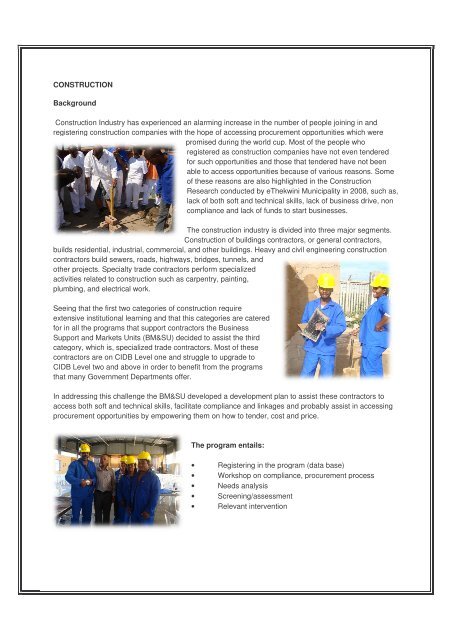
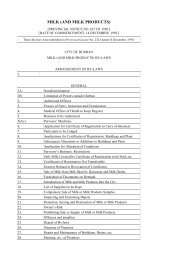
![INK Environmental Sustainability Booklet [19 MB] - Durban](https://img.yumpu.com/22025104/1/190x136/ink-environmental-sustainability-booklet-19-mb-durban.jpg?quality=85)
